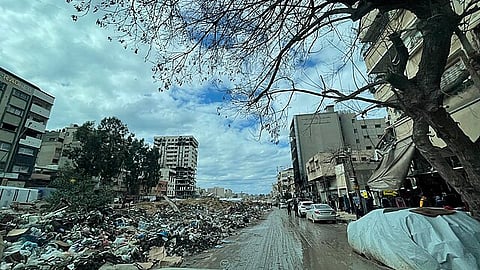

U.S. Diplomatic Pressure and Israeli Annexation Threats
U.S. Secretary of State Marco Rubio has warned allies that recognizing Palestinian statehood would "create problems" and hinder ceasefire efforts, accusing countries like France, Canada, and Belgium of pursuing "illusory" diplomacy. Rubio’s comments come amid reports that Israel’s security cabinet is discussing potential annexation of parts of the West Bank in response to these diplomatic moves. While Rubio declined to explicitly endorse annexation, he noted it was "being discussed among some elements of Israeli politics" and implied recognition efforts could trigger such actions. The United Arab Emirates has warned that annexation would cross a "red line," potentially jeopardizing the Abraham Accords.
Humanitarian Catastrophe in Gaza
Meanwhile, Gaza’s humanitarian situation continues to deteriorate. The Hamas-run Health Ministry reports 370 deaths from malnutrition, including 131 children, while Israeli operations in Gaza City have displaced 90,000 people in August alone. The UN estimates 800,000 civilians remain trapped in the city, facing famine and relentless bombardment. Israel’s military claims control of 40% of Gaza City, with strikes on neighborhoods like Zeitoun and Sheik Radwan killing 84 Palestinians in 24 hours. Medics describe pregnant women and children among the victims of recent attacks on displacement camps.
Suppression of Palestinian Diplomacy
The Trump administration has intensified measures to isolate Palestinian leadership, with Rubio announcing the revocation of visas for Palestinian officials ahead of the UN General Assembly. This unprecedented move prevents Palestinian representatives from attending critical discussions on statehood, violating diplomatic norms even extended to adversaries like Iran and Russia. Palestinian Authority President Mahmoud Abbas condemned the decision as a violation of international law, noting it undermines postwar governance planning for Gaza.
Ceasefire Stalemate and U.S. Complicity
Hamas has repeatedly expressed willingness to accept a comprehensive deal releasing all hostages in exchange for a permanent ceasefire, Israeli withdrawal, and reconstruction. However, Israel dismisses these offers as "spin" and insists on continuing military operations until Hamas is disarmed and Gaza demilitarized. The U.S. echoes this stance, with Rubio blaming recognition efforts for encouraging Hamas to "walk away from negotiations". Critics argue the U.S.-Israeli position effectively requires Palestinians to "negotiate an end to genocide" while facing systematic destruction.
International Law and Double Standards
The International Court of Justice has declared Israel’s occupation of Palestinian territories illegal, demanding evacuation of settlements. Yet the U.S. continues to shield Israel from accountability while punishing Palestinian diplomats and allies. Rubio’s threats against recognizing states contrast sharply with his department’s designation of Ecuadorian gangs as terrorist groups, highlighting selective enforcement of international norms. This approach exacerbates what human rights groups term "apartheid" and "genocide," prioritizing Israeli security over Palestinian self-determination.